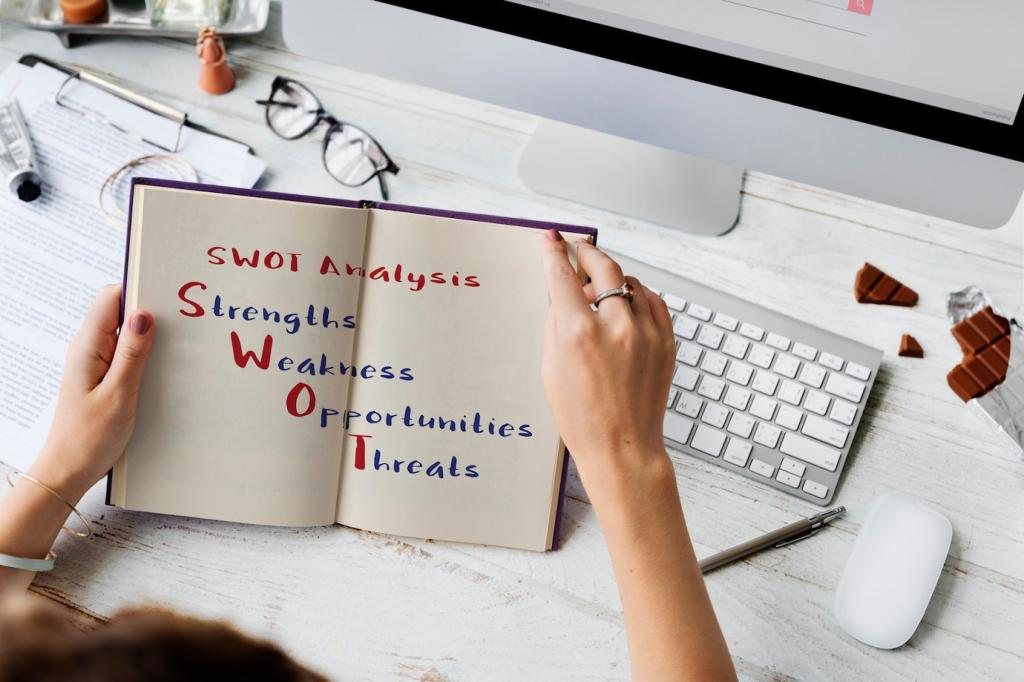
Behavioral Insights into Financial Decision-Making
Chosen theme: Behavioral Insights into Financial Decision-Making. Discover how subtle mental shortcuts, emotions, and context shape everyday money choices—and learn practical, human-centered strategies to decide smarter. If this speaks to you, subscribe and join the conversation.





Present Bias: Why Saving Tomorrow Feels Easier Than Saving Today
Morning you wants a boosted retirement balance; evening you wants takeout and a rideshare. Present bias makes now irresistible. Automating transfers right after payday hides tempting cash. What trick helps you protect savings from your spontaneous self? Share your tactic so others can adapt it.
Present Bias: Why Saving Tomorrow Feels Easier Than Saving Today
Automatic enrollment, prize-linked savings, and social contracts with a friend reduce temptation’s pull. Even small penalties—like losing a pledged donation if you skip transfers—boost follow-through. Which commitment tool would you try first, and why? Comment, and we will highlight creative approaches in upcoming posts.
Framing Effects: Same Numbers, Different Decisions
An investment described as “nine years out of ten it rises” feels safer than “one year out of ten it falls,” though probabilities match. Before deciding, deliberately reframe both ways. Which framing sways you more? Tell us, and compare notes with readers confronting the same mental lens.
A gripping story can overpower a spreadsheet, especially during hype cycles. Counterbalance narratives with base rates: how often do similar ventures succeed? What are typical timelines and costs? Share a time a compelling story nearly pulled you in, and how you reality-checked the pitch.
A 1% annual fee sounds tiny until framed as losing roughly one-third of gains over decades. Present absolute dollar costs next to percentages. Have you recalculated fees on your accounts? Post your before-and-after insights, and subscribe for our fee-framing worksheet to audit costs.

The Keeping-Up Effect
Seeing friends upgrade phones or vacations nudges us to match, even when budgets suffer. Curate your feeds and normalize frugal wins with your circle. What social cue most pressures your spending? Share it, and let’s crowdsource subtle ways to defend priorities without losing connection.
Accountability Partners That Work
Pair with a trusted friend to review monthly goals, celebrate wins, and discuss setbacks without shame. Social accountability boosts persistence and makes invisible progress visible. Would you join a small, supportive money circle here? Comment “I’m in,” and we will coordinate an interest list.
Family Money Scripts
Childhood messages—“debt is evil,” “money is status,” or “don’t talk about finances”—shape adult choices. Naming scripts reduces their grip. Which script guides your default moves today? Share one belief you are revising, and inspire someone else to rewrite their financial narrative thoughtfully.

Opt-out retirement plans and escalating contributions increase savings because doing nothing becomes beneficial. Set default transfers for bills and investments before discretionary spending appears. Which default could you switch this week? Comment your pick, and check back for a practical defaults checklist next issue.

Timely, bite-sized prompts work better than noisy alerts. A payday nudge saying “transfer now to keep your streak” beats generic notifications. What reminder cadence actually helps you act without annoyance? Share your settings, and we will compile reader-tested templates for smarter financial nudging.

Fewer options reduce paralysis. Segment accounts by job—spending, emergency, investing—to clarify trade-offs. Clear labels replace vague intentions. How have you simplified your financial dashboard lately? Post a screenshot description, and subscribe for our one-page blueprint to streamline overwhelmed money systems effectively.
Emotions, Risk, and Resilient Decision-Making
Racing pulse, tight shoulders, sleepless scrolling—your body broadcasts risk signals before your brain explains them. Pause, breathe, and step away before trading. What physical cue tells you your decisions are getting emotional? Share it, and let’s design a collective cool-down routine together.

